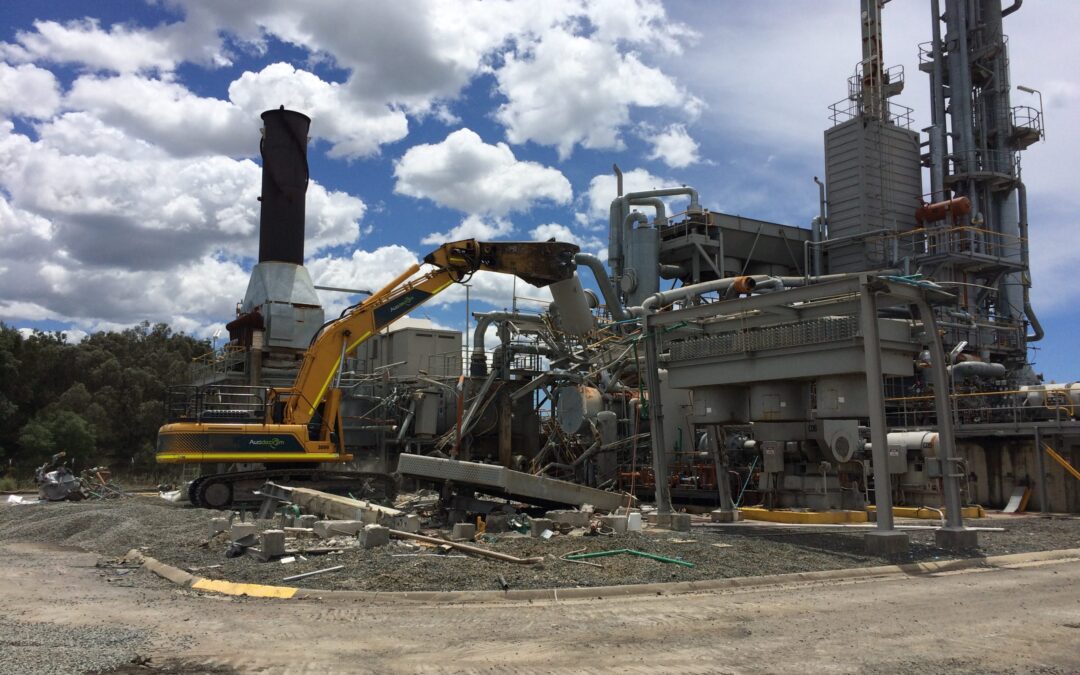As industries continue to evolve, the way we retire and repurpose industrial facilities is changing rapidly. Industrial decommissioning is no longer just about shutting down old plants—it’s about navigating environmental regulations, recovering valuable assets, and preparing sites for future use. At Lone Star Industrial Surplus, we’re seeing exciting shifts in how facilities are planned, dismantled, and transitioned in the modern age.
Why Industrial Decommissioning Is More Important Than Ever
With aging infrastructure, stricter environmental regulations, and growing sustainability goals, companies across the country are facing decisions about how to responsibly close or repurpose outdated operations. Whether it’s an oil refinery, a power plant, or a manufacturing facility, decommissioning plays a key role in risk mitigation, asset recovery, and regulatory compliance.
But today, decommissioning is not just a final step—it’s part of a larger industrial lifecycle strategy.
Top Trends Shaping the Future of Decommissioning
1. Sustainability-Driven Dismantling
More companies are prioritizing environmentally conscious decommissioning. This means diverting materials from landfills, improving hazardous waste tracking, and partnering with recyclers to repurpose equipment and components. Facilities now want more than just removal—they want to demonstrate measurable sustainability.
2. Digital Site Mapping & Inventory Tools
Technology is transforming how decommissioning projects are planned. Drones, 3D scanning, and AI-driven inventory systems allow teams to accurately map out complex sites, evaluate risks, and estimate the value of recoverable assets before physical work even begins. This leads to safer, faster, and more profitable projects.
3. Emphasis on Asset Recovery
Decommissioning is increasingly seen as an opportunity for financial return. From large-scale generators and turbines to electrical panels, stainless steel piping, and instrumentation—many components hold significant resale or recycling value. Smart companies are working with buyers early to recover costs through strategic asset liquidation.
4. Stricter Safety & Regulatory Standards
With regulations tightening at both state and federal levels, decommissioning contractors are held to higher compliance standards than ever. Projects require thorough documentation, hazardous material tracking, and safety certifications to protect workers and the surrounding environment. Working with an experienced team isn’t just a benefit—it’s a necessity.
5. Site Redevelopment Planning
Many decommissioned sites are being repurposed for logistics hubs, data centers, solar farms, or green industrial parks. This forward-thinking mindset means the decommissioning phase must support future development goals. Soil remediation, foundation removal, and structural dismantling must be done with the next use in mind.
Why It Matters for Facility Owners
Whether you’re planning a shutdown or preparing for a future expansion, understanding the new direction of industrial decommissioning is essential. Facility owners and managers who stay ahead of the curve are better equipped to reduce liability, improve compliance, and maximize asset recovery.
Working with a qualified industrial decommissioning partner like Lone Star Industrial Surplus ensures you’re leveraging best practices and navigating your project with confidence—from start to finish.
Looking Ahead
As industries move toward smarter, cleaner, and more efficient operations, decommissioning will continue to play a strategic role in how companies manage their physical assets. By embracing the latest technology, sustainability strategies, and regulatory standards, forward-thinking organizations can turn the end of a facility’s life cycle into a new beginning.
Need Help Planning a Decommissioning Project?
If you’re preparing to shut down a facility or decommission a system, Lone Star Industrial Surplus is here to help. We offer nationwide service, customized planning, and expert execution—so you can move forward with clarity and control.
Contact us today to schedule a consultation or learn more about our industrial decommissioning services.

